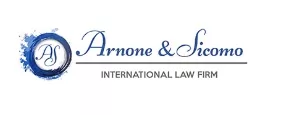Italian trust fund and family trust: what are the differences between them? What is meant with revocation? You can find all answers and other information here.
Italian trust fund and family trust: what are the differences between them?
Trust funds and family trusts are two different institutions.
The so called family trust is an institution of the Italian family law and is aimed at the settlement of different kinds of property (such as real and personal properties, as well as securities), in order to guarantee that family needs will be satisfied. Family trusts place restrictions on the use of the assets without affecting ownership.
Conversely, the so called trust fund, being a peculiar institution of common law systems, is regarded as an atypical institution in the context of the Italian legal system. It creates a mandatory relationship, whose validity depends on the admissibility and lawfulness of the settlor's interests.
Both family trusts and trust funds are characterized by split ownership, but they differ in that only trust funds involve a trust relationship. Also, while trust fund beneficiaries are explicitly named in the trust deed, family trust beneficiaries aren't.
Italian trust fund e family trust: revocation
The recent judgement no. 19376 of August 3, 2017, of the Italian Court of Cassation, established that trust fund and family trust deeds are invalid when they are executed by a debtor's wanton act, after a debt is incurred by the settlor, or with the debtor's awareness that his/her act prejudices another's rights to credit.
Indeed, the Italian Court of Cassation specified that all these cases presuppose a malicious intent, since the debtor's acts are aimed at taking away security assets from the creditors, and thus can be declared invalid pursuant to Article 2901 of the Italian Civil Code.
Italian trust fund e family trust: what is a trust fund aimed at?
In order to understand the difference between family trusts and trust funds, it is useful to take a closer look to the latter.
What is a trust fund?
The expression "trust fund" refers to the legal/administrative institution allowing a person (trustor or settlor) to convey a property to another (trustee), who will manage and control said property in order to achieve the settlor's purposes, to the benefit of one or more beneficiaries.
The trust fund is established to the benefit of a beneficiary, since upon termination of the trust, the trust property will be transferred to the beneficiary. Among a trust's assets there can be real and personal properties, securities and shareholdings, for example.
Trust assets do not become part of the trustee's personal wealth. Indeed, the trustee's personal wealth is kept distinct from trust assets, which are managed by the trustee only to the benefit of the beneficiary or to the achievement of a goal (purpose trust), pursuant to the settlor's instructions.
Accordingly, being subject to these restrictions, trust assets cannot be subject to debt enforcement procedures initiated either by the settlor's creditors (since the settlor's is not the owner of the trust assets anymore), by the beneficiary's creditors (since the beneficiary is not the owner of the trust assets yet), or by the trustee's creditors. Only the trust's creditors can make claims against a trust's assets.
The three main actors in a trust agreement are:
- The settlor, who establishes the trust, executing a trust deed and naming a trustee;
- The trustee, a physical or juridical person, who receives and manages the assets;
- The beneficiary, who benefits of the trust.
There can also be a guardian (or protector), supervising the trustee's actions, and having the power to enforce the trust agreement against any creditors' claims.
There are many different kinds of trust agreements, namely:
- Family trusts, aiming for example at protecting weak parties or determining a succession process;
- Business or financial trusts, securing bond loans, collective investments or shareholders' agreements;
- Personal or real property trusts;
- Corporate trusts, aiming at preventing company crisis and ensuring the integrity of a company management.
Italian trust fund and family trust: are they useful for the safeguard of property?
One of the central issues, when talking about trust funds and family trusts, is often that of the safeguard of property.
A trust is to be considered as an instrument whereby the settlor can protect his/her property against uncertain future events, whether of personal nature or property-related, which could divert property from the purpose for which it is held.
Obviously, then, since trust property is removed from the settlor's ownership, establishing a trust allows the settlor to protect said property from any creditors' claims regarding personal liabilities not related to the trust.
It is anyway necessary that the settlor is free from previous debts before establishing a trust.
Trusts are often established in order to protect real properties, which become non leviable once they are transferred to the trust. Most frequently trusts are established in order to protect private assets and to separate them from corporate assets or to protect individuals whose assets could be affected by their professional activities.
In order to be valid, trusts agreements must be executed through a written unilateral act, but they need not be a public deed, unless they concern alienation of real estate, shareholdings or other assets/rights.
The content of this article is intended to provide a general guide to the subject matter. Specialist advice should be sought about your specific circumstances.

